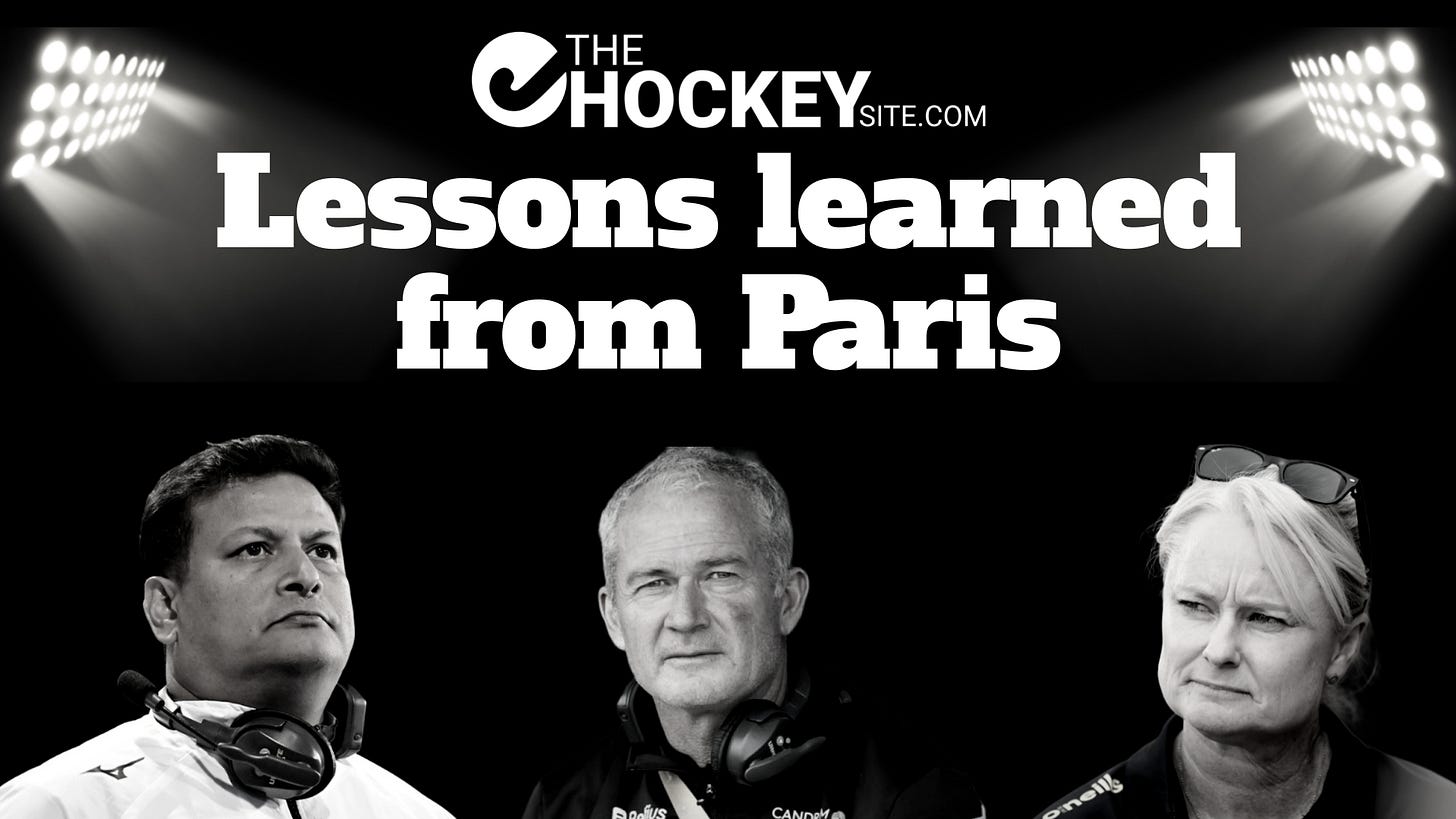A year ago: Some lessons learned in Paris
3 Olympic coaches shared their insights following the Paris 2024 Games
From the AMA sessions with Shane McLeod, Katrina Powell, and Jude Menezes about the Paris Olympic Games at The Hockey Site, several valuable lessons for coaches emerged. Here are some key takeaways:
1. Adaptability in Preparation and Execution (Katrina Powell)
Katrina Powell emphasized the importance of balancing preparation with adaptability during high-stakes tournaments like the Olympics. She highlighted that while teams must have a strong understanding of their own game plan, they also need to be flexible enough to adjust to unexpected challenges. For example, she noted that many teams save tactical surprises for the Olympics, making pre-tournament scouting less reliable. Coaches must prioritize their own team's strengths and processes to negate these surprises effectively.
2. The Value of Small-Sided Games and Hybrid Play (Shane McLeod)
Shane McLeod discussed the concept of creating a "hybrid team"—one that excels in both structured play and exploiting transition moments. He stressed the importance of training scenarios that replicate game situations, such as small-sided games that emphasize quick ball movement, vision, and decision-making under pressure. He also advised focusing on skills and tactics that occur frequently in matches, rather than rare situations, to maximize training efficiency.
3. Prioritizing Mental and Physical Well-Being (Katrina Powell)
Katrina highlighted the need to support athletes holistically, including their psychological and cultural well-being. She explained that high-performance behaviors are essential, but these must be nurtured through consistent support. This approach ensures that players not only perform well individually but also contribute effectively to the team dynamic. She also pointed out that during the Olympics, overloading players with information can be counterproductive, instead, coaches should focus on delivering clear, actionable priorities.
4. Leveraging Domestic Competitions for Development (Jude Menezes)
Jude Menezes, coaching the Japanese women’s team, shared insights on how domestic leagues can be a breeding ground for tactical and technical development. He emphasized the importance of using these competitions to identify and nurture talent, as well as to experiment with tactical innovations that can be carried into international play. This aligns with Katrina Powell's approach of refreshing the squad post-Olympics by integrating new players from domestic leagues like Hockey One in Australia.
5. The Importance of Team Cohesion and Legacy (Katrina Powell)
Katrina spoke about the responsibility of maintaining a team's legacy while fostering a culture of collaboration. She stressed that great individual players alone are not enough, success comes from building a cohesive unit where everyone buys into the team's vision and values. This requires deliberate effort from coaches to align individual and team goals, ensuring that players work together seamlessly on the field.
6. Freshening Up Training Methodologies (Shane McLeod)
Shane McLeod reflected on the need to periodically refresh training methodologies to keep players engaged and motivated. While his team maintained a consistent approach to small-sided games and load management, he acknowledged that introducing new elements post-Olympics was crucial for sustaining long-term success. This lesson underscores the importance of evolving as a coach and adapting to the changing needs of the team.
These lessons offer a brief view of what it takes to succeed at the highest level of competition. If you’re interested in diving deeper into these insights, you can access the full masterclasses and discussions via https://thehockeysite.com/membership-options. Or, for personalized guidance, consider booking a session with a top coach at https://gotyourback.app
If you're looking for an answer to your own coaching questions, ask your question here to get an answer based upon the many, many talks I had with some of the best coaching minds in the game of hockey 🏑
Sources:








